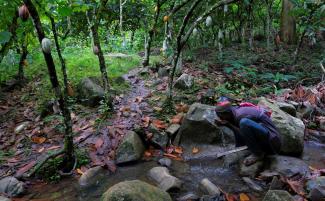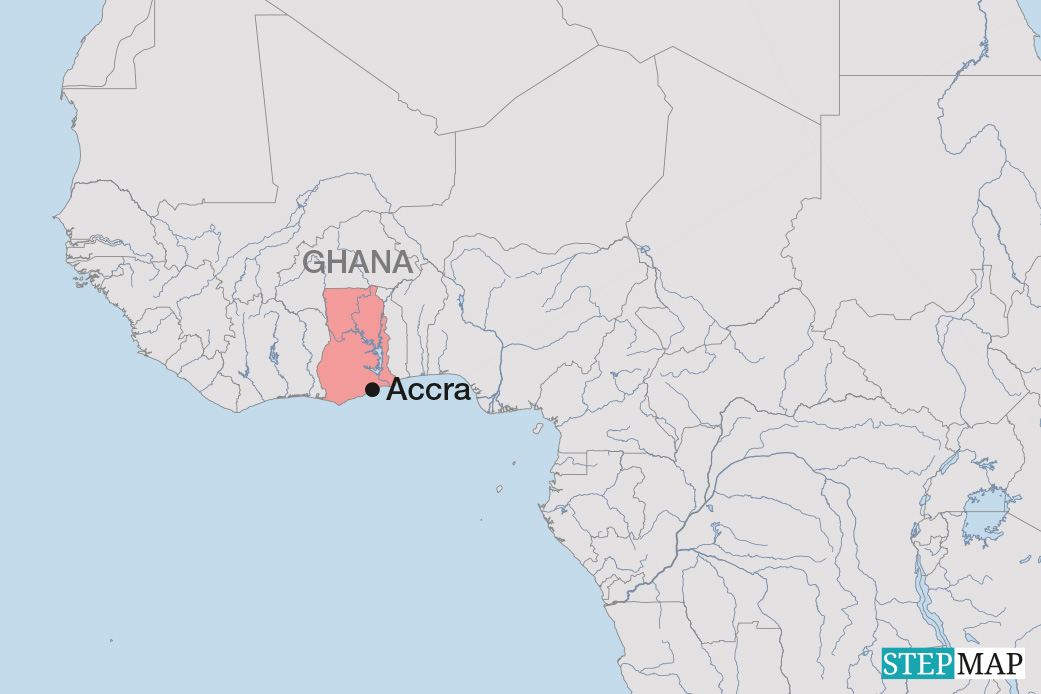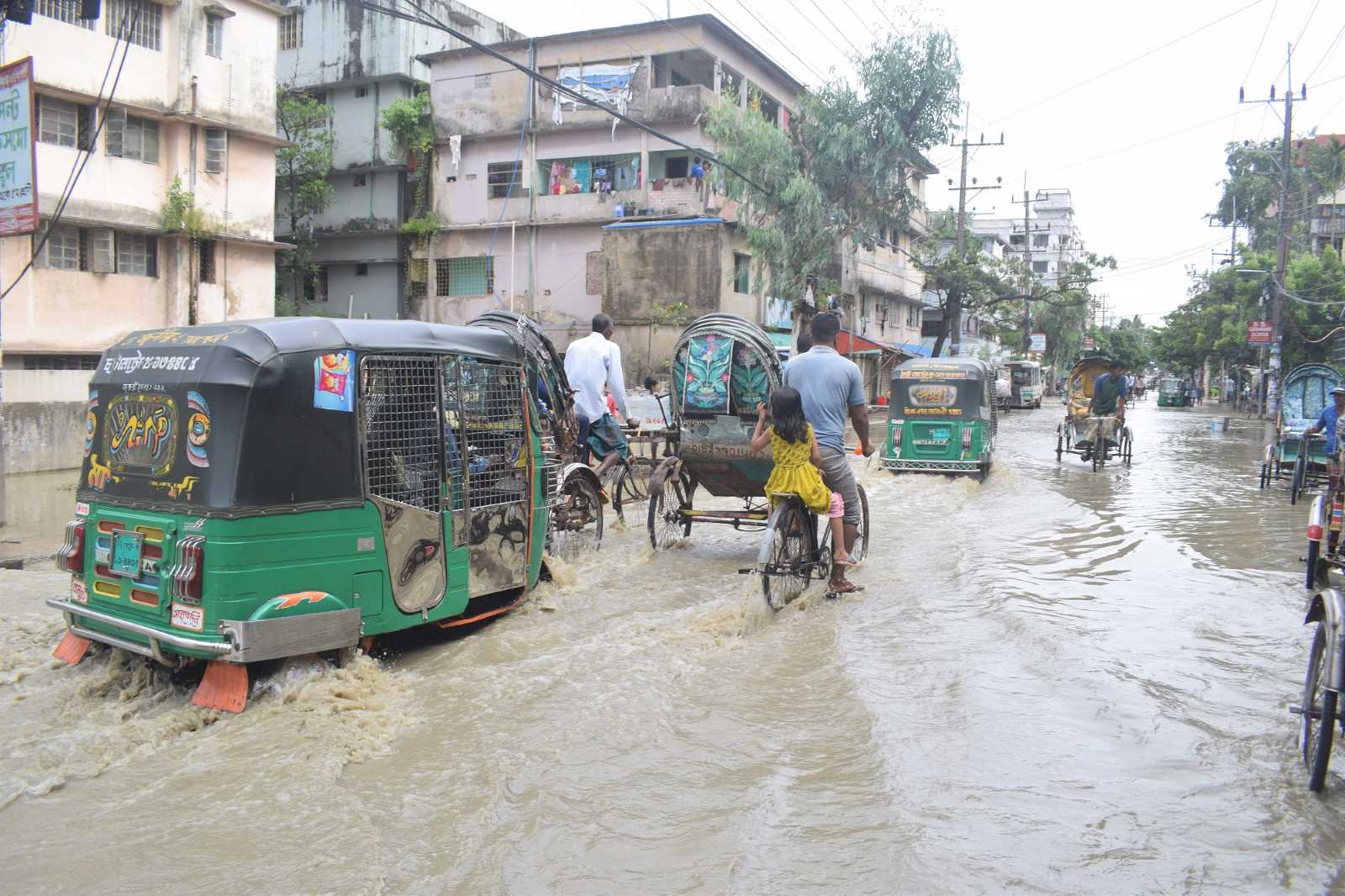Access to drinking water
Promoting access to safe drinking water for all

https://www.dandc.eu/en/article/ghanas-water-supply-developed-over-last-hundred-years-involvement-many-institutions-andWhile Ghana has made meaningful improvements to the provision of safe drinking water, the efforts put in place at the policy level have not resulted in the progress anticipated. In Ghana, water-supply systems are complex. They are made up, on the one hand, of formal state institutions such as GWCL and CWSA, and, on the other, of informal vendors and private institutions seeking to fill in the gaps.
Socio-economic inequalities make it difficult for many people to afford safe drinking water. Poverty is widespread. Ghana’s labour market is dominated by low-wage earners working in the informal sector. According to the Ghana Living Standards Survey Round Seven (GLSS 7), two-thirds of currently employed people are engaged in what is described as “vulnerable employment”. The proportion is higher in rural areas.
The vulnerably employed have difficulty paying more for basic water, sanitation and hygiene services. What’s more, there are no social safety nets to ensure adequate supply of clean water to the poor and vulnerable. The prevailing focus on market-driven approaches and cost-recovery mechanisms is also standing in the way of providing access to all.
There are marked regional differences in access to safe drinking water as well. According to the 2021 Population and Housing Census, there is a glaring rural-urban divide in the quality of water distribution and infrastructure, with urban households more likely to have access to safe drinking water.
However, GWCL is also unable to meet the demand for water in urban areas, resulting in a chronically irregular water supply and a high reliance on informal water sources. The two main sources of drinking water in urban areas are sachet water (51.5 %) and pipe-borne water (33.6 %). Rural areas rely on borehole/tube wells (33.6 %) as well as pipe-borne water (28.8 %).
The average time households without water on their premises need to access any source of drinking water is 19 minutes. People in rural areas generally need longer (22 minutes) than in urban areas (13 minutes). In rural areas, there are also comparatively more households more than 30 minutes away from a drinking-water source.
Girls and women are primarily responsible for fetching water, which affects girls’ school attendance and women’s ability to engage in meaningful employment. It is important to note that these statistics do not adequately cover the growing number of peri-urban and informal settlements with highly irregular and insecure access to drinking water.
For many rural communities, surface water abstraction (such as from rivers, streams and ponds) remains a substantial source of water for drinking and domestic use. This water is most likely polluted. The increase in illegal mining activities (also called “galamsey”, derived from the phrase “gather them and sell”) continues to pollute streams and rivers, disrupting water availability and leading to high treatment costs. Other factors affecting surface water volumes and quality include deforestation, improper agricultural practices, poor sanitation and solid waste-management practices, environmental pollution and climate change.
Getting on track for the future
Obstacles to achieving safe drinking water for Ghanaians are:
- poor enforcement of existing laws;
- a lack of affordability and access, especially among the poor and vulnerable;
- inadequate infrastructure;
- and a low capacity to manage water systems, especially at the local level.
Water provisioning and governance institutions, as well as the legal framework, need to be updated to address the complex issues challenging water security in Ghana today. These include climate change, illegal mining, biodiversity loss, increasing poverty and the rising number of self-supply points and vendors. The climate crisis especially threatens the water infrastructure system’s ability to supply services. It causes extreme events such as floods and droughts, which reduce the efficiency of dams and reservoirs.
Access to clean and affordable drinking water is a national policy issue. Not only the climate crisis highlights the importance of greater investment in infrastructure, particularly in water supply storage and flood mitigation systems. Most rural water infrastructure, where it exists at all, is non-functional or outdated, and efforts to retrofit it are slow and insufficient.
Increasing investment in accessible and targeted climate-smart infrastructure could create win-win scenarios for the government and its institutions, as well as water-sector stakeholders. Investing in renewable technology could also help expand water service to areas that do not have connections to the formal water infrastructure. Water-supply systems should be expanded to include wastewater collection and treatment, as well as storm-water systems with storm-water pipes and other infrastructure.
The majority of the water resources that feed drinking-water systems are in rural communities. However, the top-down approach of most policies often ignores local expertise. Including local stakeholders would mean reaching out to local and traditional authorities, as well as incorporating indigenous values and knowledge in measures to safeguard water bodies.
At the same time, water affordability needs to be prioritised. The current focus on cost recovery and tariffs excludes the poor from accessing safe drinking water. Targeted social-protection initiatives that address affordability concerns are long overdue. Such initiatives could include flexible payment systems, developing affordability thresholds and providing subsidies, for example on water-storage systems. The lessons the government learned from providing free drinking water during the Covid 19 pandemic could be valuable in developing such programmes.
Ghanaian civil society should also be strengthened to play its role. There is a high dependence on foreign aid and NGO support. Community-based groups such as WSMTs and water and sanitation (WATSAN) committees need to be adequately resourced and trained to care for rural water infrastructure and advocate for safe water access.
Elaine T. Lawson is a senior research fellow at the University of Ghana’s Institute for Environment and Sanitation Studies.
elaine_t@staff.ug.edu.gh








